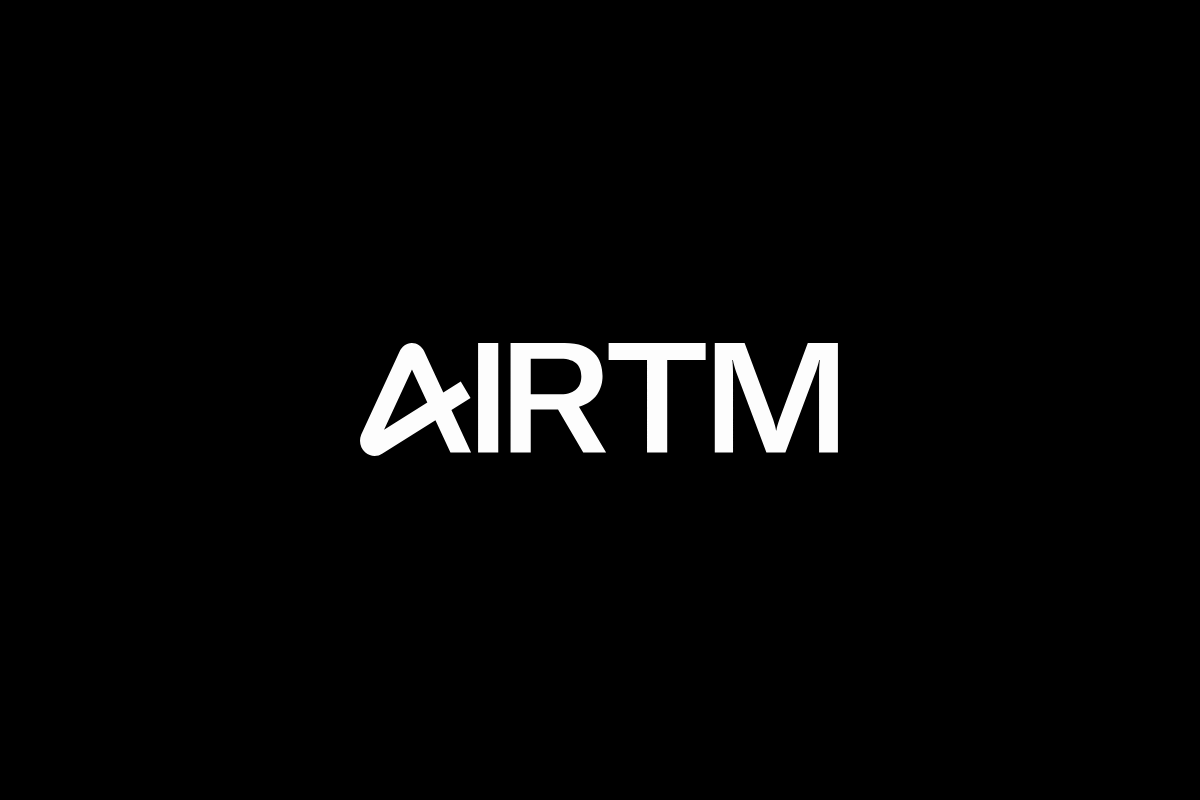Fintech
Digital Securities Guru Thomas Carter on The Two Keys That Will Unlock Mass Adoption of Cryptocurrency/Blockchain in 2020

New York, NY, Jan. 09, 2020 (GLOBE NEWSWIRE) — (via Blockchain Wire) Blockchain technology saw exponential growth in 2019, unprecedented adoption and interest by governments and institutions around the world validating it’s utility.
With core infrastructure being built out across the planet, enterprise investment and regulatory pathways being defined the stage is set for 2020 to be the year for mass adoption of blockchain technology.
Thomas Carter, digital securities pioneer, and CEO of DealBox outlines two key trends that will bring about massive opportunities in the blockchain space in this new year.
Key 1 – The Fat Protocol & Next Generation Blockchains
Joel Monegro’s Fat Protocol thesis describes how the value of blockchain technology is based on an opposite paradigm to the way value was created via the internet over the past couple of decades.
The protocol layer of the internet (HTTP, FTP, SMTP, etc) which is the technology that provides the underlying mechanics for websites, file transfers, and email isn’t where the value was created.
Instead, the apps that used the protocols (Facebook, Google, Amazon, etc) were the winners. Thus, the “thin protocol” designation.
In the Blockchain ecosystem we see the inverse is true where value creation will be realized by the market cap of the underlying blockchain protocol as opposed to the apps being built on it.
In other words, the value in the Ethereum blockchain can be expected to be more than the dApps (decentralized apps) being built on it. Fat Protocol.
This thesis holds true only if the blockchain in question has solved the TPS (transactions per second) or throughput problem. 1st and 2nd generation blockchains like Bitcoin and Ethereum rely on consensus mechanisms that put a huge drag on transaction speed making them unviable by enterprise adoption standards.
3rd generation blockchain is all about increasing transaction speed without compromising the security, immutability and distribution of the chain.
To solve the TPS problem, various new consensus mechanisms are being developed along with sidechain technology.
Sidechains are a separate and parallel data layer that off-loads some of the data from the mainchain thereby reducing the amount and frequency of needing to wait for consensus confirmation. Gorbyte’s GNodes system eliminates the need for miners which has been the traditional bottleneck for TPS. In this latest book, Life After Google.. Gilder coins the term “The Cryptocosm”, to describe the emerging wave of innovative blockchain-based technology companies who are not just bringing paradigm shifting solutions to the market — but redefining the market itself.
Gilder recently had this to say about DealBox security token issuer Giuseppe Gori in this latest newsletter
“Giuseppe Gori is an internet legend..”
On Giuseppe’s new book –
“With Reinventing the Blockchain Gori becomes the reigning prophet of the next phase of the Cryptocosm, and Cryptocosmic investment…” “Gori is the tribune of a new generation of blockchain inventors and their companies.”
Giuseppe’s company Gorbyte has built a blockchain that is faster and vastly more scalable than Bitcoin. It’s easier and more affordable for running smart contract applications than Ethereum.
Key 2 – Usability For those companies, the better model would compensate the users for creating the content and empower them to take their content elsewhere if a better deal became available. With data decentralized, security would be much better and privacy would be better protected.
That’s exactly what a decentralized application built on an open data protocol would do. And the compensation of the users is what a native cryptocurrency token would satisfy in this new business model.
Why isn’t this being done en masse? Bitcoin is now over a decade old. Bitcoin miners have been incentivized by receiving tokens and that is precisely why Bitcoin works as well as it does. The model is proven.
Actually, a number of entrepreneurs have tried. Steem is like a decentralized Reddit with a token incentive model and it has been chugging along for sometime.
There are 150 + decentralized apps in the Blockstack app store and a similar thriving ecosystem can be found on Ethereum.
We know that TPS/scalability has been a problem but there is a second key component and that is usability.
Usability for blockchain is in dire need of a refactoring. No matter how amazing a technology is if it is hard to use, people simply won’t use it. More accurately, if they can’t figure out how to use it – they can’t use it. We now have scalability solved with next generation blockchains like Gorbyte and a consortium of other ventures are now working together on a shared vision to improve blockchain usability called “Make Crypto Easy”.
Thomas Carter on the current situation:
“With blockchain tech and cryptocurrency, we aren’t dealing with a typical market adoption learning curve. Bitcoin was born of iconoclastic ideals and philosophy. If you were a technologist and you resonated with the philosophy behind Bitcoin, then you would figure out how to use it. In other words, user-friendliness wasn’t ever a consideration until now and that was mostly on purpose.”
The Make Crypto Easy consortium venture members are focused on solving usability issues in 4 areas of user blockchain user-experience: Transactions, Identity, Education and Digital Banking.
To learn more about the ventures and groundbreaking technology spearheading this initiative please visit http://www.makecryptoeasy.io/
As blockchain technology and the verifiable distributed trust it confers continues to reshape the world of finance that directly impacts the fundamental ways we all transact online.
Addressing the Two Key issues of scalability and usability will remove the final friction points to widespread user adoption.
With the pace of progress being made by the ventures mentioned above as well as by other projects in the crypto space, 2020 is likely to be the tipping point for massive disruption and opportunity.
Thomas Carter, founder and CEO of DealBox, Inc; read about Thomas: “This FinTech Veteran Is Making Cryptocurrency Startup Funding Legitimate“; connect on LinkedIn and Instagram.
Contact: Shazir Mucklai
Imperium Group

Gorbyte, founded by Giuseppe Gori is one project in particular just coming out of stealth mode that has created an elegant solution to the problem of blockchain scalability.
George Gilder is a legend in tech and economic circles. His book Wealth and Poverty was the guiding light for Regan’s economic policies which ignited the rise of the Dow Jones Industrial Average from roughly 800 in 1979 to where it is today.
Gilder predicted much of the ubiquitous tech in use today years before it existed in his books: Microcosm, Telecosm, Life After Television, and The Silicon Eye.
Blockchain is different from the traditional internet in that it incorporates a shared data layer rather than data being siloed and monetized by companies like Facebook, Instagram, Reddit, etc.,
Fintech
Fintech Pulse: Your Daily Industry Brief (Chime, ZBD, MiCA)

As we close out 2024, the fintech industry continues to deliver headlines that underscore its dynamism and innovation. From IPO aspirations to groundbreaking regulatory milestones, today’s updates highlight the transformative power of fintech partnerships, regulatory evolution, and disruptive technologies. Here’s what you need to know.
Chime’s Quiet Step Toward Public Markets
Chime, the U.S.-based financial technology startup best known for its digital banking services, has taken a significant step by filing confidential paperwork for an initial public offering (IPO). As one of the most valuable private fintechs in the U.S., Chime’s move could potentially signal a renewed appetite for fintech IPOs in a market that has been cautious following fluctuating valuations across the tech sector.
With a valuation that reportedly exceeded $25 billion in its last funding round, Chime’s IPO could set a new benchmark for the industry. Observers note that its strong customer base and revenue growth may make it an appealing choice for investors seeking to capitalize on the digital banking boom. However, the timing and success of the IPO will depend on broader market conditions and the regulatory landscape.
Source: Bloomberg
ZBD’s Pioneering Achievement: EU MiCA License Approval
ZBD, a fintech company specializing in Bitcoin Lightning network solutions, has made history by becoming the first to secure an EU MiCA (Markets in Crypto-Assets Regulation) license. This landmark approval by the Dutch regulator positions ZBD at the forefront of compliant crypto-fintech operations in Europe.
MiCA, which aims to harmonize the regulatory framework for crypto-assets across the EU, has been a focal point for industry players aiming to establish legitimacy and expand their offerings. ZBD’s achievement not only validates its operational rigor but also sets a precedent for other fintech firms navigating the evolving regulatory landscape.
Industry insiders view this as a strategic advantage for ZBD as it broadens its footprint in Europe. By leveraging its regulatory approval, the company can accelerate its product deployment and establish trust with institutional and retail users alike.
Source: Coindesk, PR Newswire
The Fintech-Credit Union Synergy: A Blueprint for Innovation
The convergence of fintechs and credit unions continues to reshape the financial services ecosystem. Collaborative initiatives, such as the one highlighted in the recent partnership between fintech innovators and credit unions, are proving to be a potent force in delivering tailored financial solutions.
This “dream team” approach allows credit unions to leverage fintech’s technological expertise while maintaining their community-focused ethos. Key areas of collaboration include digital payments, personalized financial management tools, and enhanced loan processing capabilities. These partnerships not only enhance member engagement but also enable credit unions to remain competitive in an increasingly digital-first financial environment.
Industry analysts emphasize that such collaborations underscore a broader trend of traditional financial institutions embracing fintech-driven solutions to bridge service gaps and foster innovation.
Source: PYMNTS
Tackling Student Loan Debt: A Fintech’s Mission
Student loan debt remains a pressing issue for millions of Americans, and a Rochester-based fintech aims to offer relief through its cloud-based platform. This innovative solution is designed to simplify loan management and provide borrowers with actionable insights to reduce their debt burden.
The platform’s features include repayment optimization tools, personalized financial education, and seamless integration with loan servicers. By addressing the complexities of student loan management, this fintech is empowering borrowers to make informed decisions and achieve financial stability.
As the student loan crisis continues to evolve, solutions like this highlight the critical role fintech can play in addressing systemic financial challenges while fostering financial literacy and inclusion.
Source: RBJ
Industry Implications and Takeaways
Today’s updates underscore several key themes shaping the fintech landscape:
- Regulatory Milestones: ZBD’s MiCA license approval exemplifies the importance of regulatory compliance in unlocking growth opportunities.
- Strategic Partnerships: The collaboration between fintechs and credit unions demonstrates the value of combining technological innovation with traditional financial models to drive customer-centric solutions.
- Market Opportunities: Chime’s IPO move reflects a potential revival in fintech public offerings, signaling confidence in the sector’s long-term prospects.
- Social Impact: Fintech’s ability to tackle systemic issues, such as student loan debt, showcases its role as a force for positive change.
The post Fintech Pulse: Your Daily Industry Brief (Chime, ZBD, MiCA) appeared first on News, Events, Advertising Options.
Fintech
SPAYZ.io prepares for iFX EXPO Dubai 2025

Leading global payments platform SPAYZ.io has confirmed it will be attending iFX EXPO Dubai 2025 on 14 to 16 January. Exhibiting at Stand 64 at Trade Centre Dubai, SPAYZ.io’s team of professionals will be on hand providing live demonstrations of its renowned payment services for payment providers. Attendees will also receive exclusive insight into SPAYZ.io’s plans for 2025 alongside early early access to its upcoming plans for the new year.
SPAYZ.io delivers a host of payment solutions that leverage the latest technological innovations and open access to the fastest growing emerging markets across Africa, Europe and Asia. Over the past year, there has been huge demand for its Open Banking and local payment method services, alongside bank transfers, mass payouts, online banking and e-wallets.
Yana Thakurta, Head of Business Development at SPAYZ.io commented: “We look forward to once again participating at iFX Dubai to expand our network of partners and clients. It’s a fantastic way to kick off the year, connecting with thousands of industry leaders from FOREX platforms to trading companies, and everything in between.
“Our key goal for iFX Dubai EXPO 2025 is to expand our portfolio of solutions and geographies. We’re using this as an opportunity to partner with like-minded entities who share our ambition to provide payment solutions that are truly global.”
Come meet SPAYZ.io’s team at the Trade Centre Dubai at Stand 64. You can also book a meeting slot with a member of a team.
The post SPAYZ.io prepares for iFX EXPO Dubai 2025 appeared first on News, Events, Advertising Options.
Fintech
Airtm Enhances Its Board of Directors with Two Strategic Appointments

Airtm, the most connected digital dollar account in the world, is proud to announce the addition of two distinguished industry leaders to its Board of Directors: Rafael de la Vega, Global SVP of Partnerships at Auctane, and Shivani Siroya, CEO & Founder of Tala. These appointments reflect Airtm’s commitment to innovation and financial inclusion as the company enters its next phase of growth.
“We are thrilled to welcome Rafael and Shivani to Airtm’s Board of Directors,” said Ruben Galindo Steckel, Co-founder and CEO of Airtm. “Their unique perspectives and proven track records will be invaluable as we continue scaling our platform to empower individuals and businesses in emerging markets. Together, we’ll push the boundaries of financial inclusion and innovation to create a more connected and equitable global economy. Rafael and Shivani bring a wealth of experience and strategic insight that will strengthen Airtm’s mission to connect emerging economies with the global market.”
Rafael de la Vega, a seasoned leader in fintech global partnerships and technology innovation, is currently the Global SVP of Partnerships at Auctane. With a proven track record of delivering scalable, impactful solutions at the intersection of fintech, innovation, and commerce, Rafael’s expertise will be pivotal as Airtm continues to grow. “Airtm has built a platform that breaks down barriers and opens up opportunities for people in emerging economies to connect to global markets. I am excited to contribute to its growth and help further its mission of fostering financial inclusion on a global scale,” said Rafael.
Shivani Siroya, CEO and Founder of Tala, is a pioneer in financial technology, renowned for empowering underserved communities through access to credit and essential financial tools. Her leadership in leveraging data-driven innovation aligns seamlessly with Airtm’s vision of creating more equitable financial opportunities. “Empowering underserved communities has always been at the core of my work, and Airtm’s mission resonates deeply with me. I’m thrilled to join the Board and work alongside such a dynamic team to expand access to financial tools that truly make a difference in people’s lives,” said Shivani.
The post Airtm Enhances Its Board of Directors with Two Strategic Appointments appeared first on News, Events, Advertising Options.
-

 Fintech7 days ago
Fintech7 days agoFintech Pulse: Your Daily Industry Brief (Revolut, Bestow, Advyzon, Tyme Group, Nubank)
-

 Fintech5 days ago
Fintech5 days agoFintech Pulse: Your Daily Industry Brief (Chime, ZBD, MiCA)
-

 Fintech PR4 days ago
Fintech PR4 days agoAccording to Tickmill survey, 3 in 10 Britons in economic difficulty: Purchasing power down 41% since 2004
-

 Fintech5 days ago
Fintech5 days agoSPAYZ.io prepares for iFX EXPO Dubai 2025
-

 Fintech5 days ago
Fintech5 days agoAirtm Enhances Its Board of Directors with Two Strategic Appointments
-

 Fintech PR4 days ago
Fintech PR4 days agoPresident Emmerson Mnangagwa met this week with Zambia’s former Vice President and Special Envoy Enoch Kavindele to discuss SADC’s candidate for the AfDB
-

 Fintech PR4 days ago
Fintech PR4 days agoStay Cyber Safe This Holiday Season: Heimdal’s Checklist for Business Security
-

 Fintech PR6 days ago
Fintech PR6 days agoGan & Lee Pharmaceuticals Announces U.S. FDA Clearance of the IND application for the innovative Bi-weekly GLP-1RA GZR18 Injection, Bofanglutide, with chronic weight management Indication (A Phase 2 head-to-head with Tirzepatide clinical trial)












